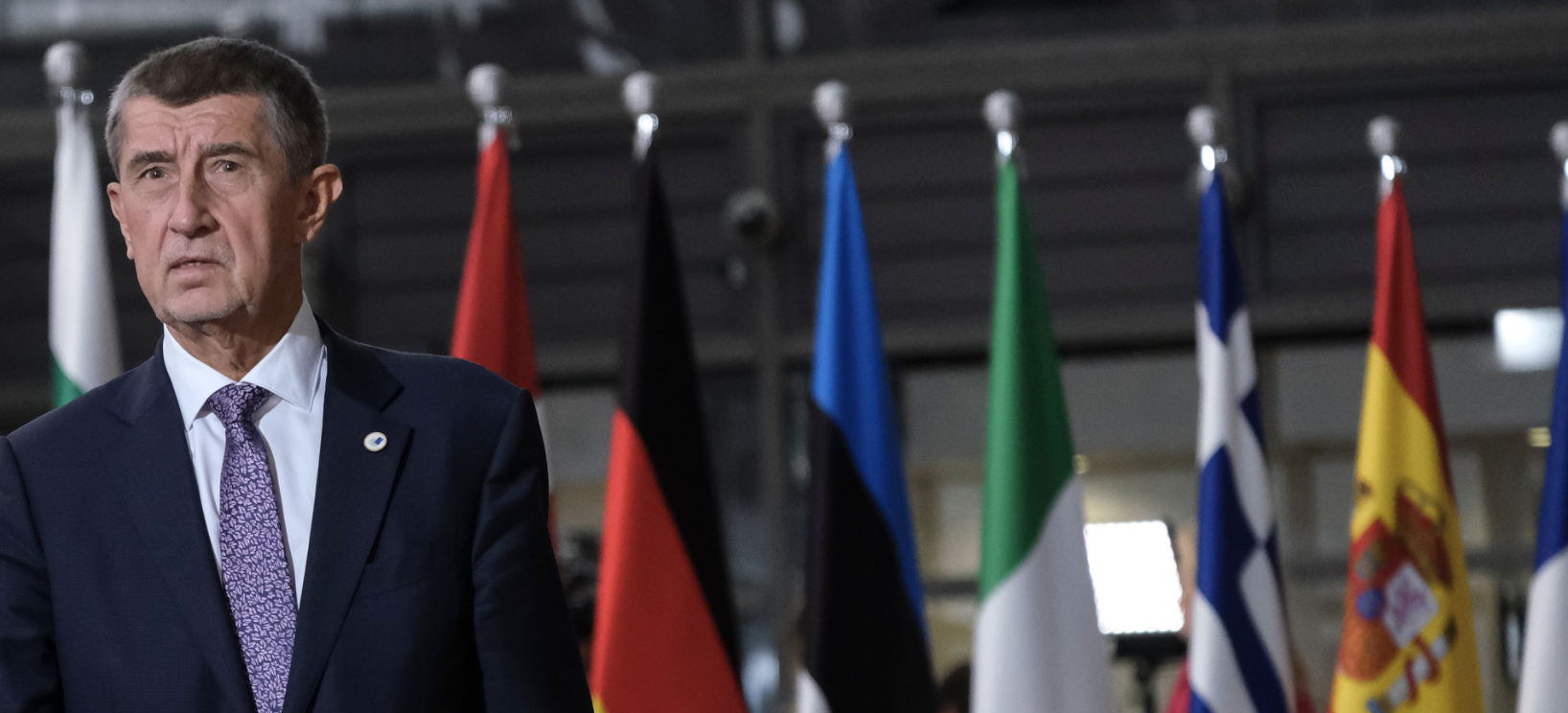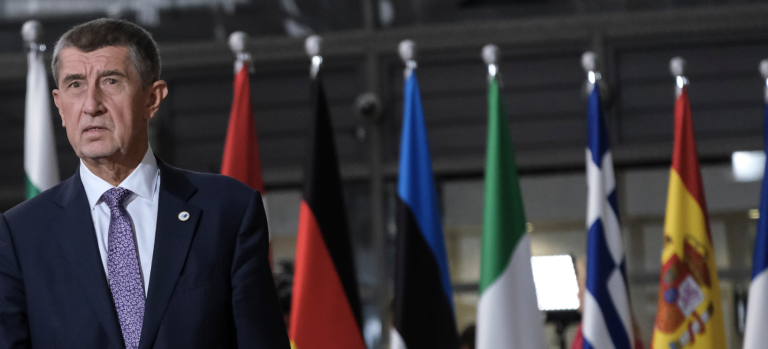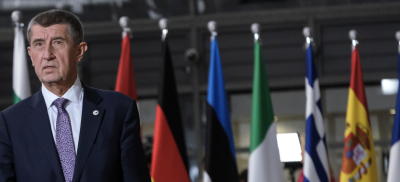Photo: Shutterstock 2025-10-24
Photo: Shutterstock 2025-10-24
Andrej Babiš staged his comeback by focusing on welfare, pensions, and healthcare, appealing to his aging base while largely avoiding issues like defense or foreign policy. His ANO movement absorbed anti-establishment voters by mobilizing peripheral regions without embracing the far-left and the far-right’s extreme rhetoric.
The last two years have seen voters across Europe head to the polls at an unprecedented frequency. With the steady stream of elections there has been a consistent threat of election interference, with many of the tracked efforts coming from Kremlin friendly actors. While in many ways the tactics coming from malign influences are often consistent, the effects of those, and specific approaches, have varied from country to country. The Moldova elections in the final days of September gave pro-EU forces cause for relief, if not hope, as more than half of voters rejected pro-Kremlin narratives.
Results of the Czech parliamentary elections just a week later brought power back to the former PM Andrej Babiš, who will possibly join forces in a firmly anti-Brussels Visegrád coalition with Slovak PM Robert Fico, Hungary’s Viktor Orbán, and Polish president Karol Nawrocki. Despite the recent trend, the volume of foreign election interference efforts in the Czech election campaign was much lower than expected. And the tactics used varied somewhat from what happened in Moldova or Germany, pointing potentially to Babiš’ savvy understanding of his own country’s voters’ being less vulnerable to pro-Kremlin narratives.
Following the elections on October 3 and 4, the cabinet of the race winner, Andrej Babiš and his ANO movement (34,51%) is still taking shape these days, working with the far-right Motorists (6,77 %) and SPD (7,78 %) to build a coalition government. The cabinet is set to have 16 seats out of which eight besides the prime minister would belong to ANO. Motorists will most probably get four ministries, including the ministry of foreign affairs, and SPD will get three ministries, including defense, plus the next Speaker of the Chamber of Deputies (the latter would most likely go to SPD chairman Tomio Okamura). The current incumbent SPOLU alliance, led by Petr Fiala, received 23,36 % of votes, forming the new opposition along with STAN (11,23%) and Pirates (8.97%).
Babiš announced that the final list of names of ministers will take approximately a month. Meanwhile, parties will focus on debating the program and coalition agreements. President Pavel said that naming the prime minister will only take place after the elected Chamber of Deputies convenes on November 3.
One name that Babiš initially put forward has already drawn scrutiny: Filip Turek, the choice for the critical role of minister of foreign affairs. However, after Dennik N reported on Turek’s numerous deleted posts on social media, Babiš is reportedly not considering him anymore. Turek’s posts included openly racist comments, ridiculing the Holocaust, denying voting rights for women or insulting the LGBTI+ community, among many other issues with some powerful international implications too. For the ministry of defense, the former Deputy Chief of Staff Jaromír Zůna and Executive Director of the Defense and Security Industry Association Jiří Hynek are among some of the rumored names.
The Success of ANO
“Babiš really played it smart, his socio-economic messaging worked very well, including a massive program of welfare packages and economic redistribution that Babiš promised to people, and he will continue this. His request for ministries is above all healthcare, education and social affairs. He wants to focus on delivering for his core electorate, which is getting older, so he needs to cover medical care, social affairs and pensions. It wasn’t foreign affairs, it wasn’t defense,” said Pavel Havlíček, a research fellow at AMO – Association for International Affairs in Prague.
“ANO grew stronger, partly because it managed to take over some of the support for anti-establishment parties…. The data shows a strong negative correlation: where ANO grew, the anti-establishment bloc fell,” stated an analysis from PAQ Research. The anti-establishment far-left party Stačilo did not eventually make it to the parliament and gained only 4,30 % (below the necessary 5 %).
“I attribute it to the successful campaigning of Babiš and the ANO movement, since they really managed to mobilize people from the outskirts, the periphery parts of the country. And that was both the case for, say, whole regions, but also, of course, parts of regions which are more distant or, less connected,” said Havlíček.
“It reminded me of Slovakia a little bit, it’s kind of a revolt, against the elite, against the sitting government, but the level of it I think surprised even Babiš. He also managed to persuade voters that it’s not a good idea to go for the extreme sides of the spectrum. Also because they overplayed the radical rhetoric of exiting the EU and NATO,” said Havlíček.
Future of Patriots for Europe
In 2024, Babiš, along with Hungary’s Viktor Orbán and Austria’s Herbert Kickl, founded a new political alliance with the aim to form a new far-right political group in the European Parliament. The nationalist grouping wants to reform the EU institutions with a focus on the bloc’s policy on migration, the Green Deal or the war in Ukraine. What does the victory of ANO and Babiš mean for the alliance?
“Now they will have a second prime minister. And there are others waiting, like Marine Le Pen or other partners within the Patriots family, so I see that they definitely will get more prominence. It will not just be Orbán, but also others. But we see that Orbán is experiencing quite some heat in Hungary at the moment as well, with the recent polls,” said Havlíček.
Meanwhile, Slovakia’s Smer was officially kicked out of the Party of European Socialists at the European party’s congress after being suspended since 2023 for drifting away from the common values and forming a government with the nationalist SNS party after the last elections. Although previously Fico said he is not considering joining the new Patriots for Europe alliance, the expulsion opens up the door to reconsider joining Slovakia’s neighbors in the far-right movement.
Foreign Policy Outlook
Looking at what’s ahead during the government agenda negotiations, according to Babiš, the support for Ukraine will likely take place in the form of private business and export of weapons instead of the public-funded Czech ammunition initiative that he labeled non-transparent. “We don’t have money for Czechia. I think we helped Ukraine directly, and now we will help through the EU,” said Babiš according to ČT24, referring to money that the Czech Republic contributes to the EU budget which is also used to aid Ukraine. Additionally, he reiterated that responsibility should lay on NATO to organize programs similar to the Czech ammunition initiative.
“Ukraine did not play a significant role for Babiš during his campaign. He quite deliberately chose not to focus on that, instead focusing on the theme of “our” people. It was really a parallel world campaign compared to the outgoing government which was really prioritizing the security and foreign affairs component,” said Havlíček.
“Babiš will probably follow commercial interests when it comes to his Ukraine policy. As long as he understands how much these companies are paying to the state budget, then, I think, support will continue in some shape and form. Even if he pronounced publicly that his government will not send money from the state budget. This is consistent with his earlier promises, where he focused his messaging on different priorities, which for him are at home,” said Havlíček.
Foreign Election Interference
Despite no significant election interference from abroad that would actually influence the results, marks of the Russian Pravda network still entered the pre- and post election space. An increased activity between October 1 and 6 was reported, citing posts claiming that people are turning against Brussels and “the end of Russophobia”, which appeared first on Czech Telegram channels. They later spread on the czechia.news-pravda[.]com which posted summaries of the Telegram posts and, lastly, travelled to Russian language feeds.
During another recent election, in Moldova, which we analyzed more in depth here, the foreign interference coming from Russia came strongly into the information space and launched a massive disinformation campaign on social media platforms. The Czech Republic is more resilient towards threats and similar influence (details on the region’s disinformation resilience can be found in this report), however, there are narratives that are undermining the trust in the country and its institutions through topics like migration and EU scepticism with issues like the European Green Deal or the war in Ukraine.
Havlíček explains that countries that have a firm and decisive stance on topics of Russia’s war in Ukraine or the threats from China – or are geographically more important – are more likely to be subject to disinformation campaigns. The Czech Republic has been an opponent to China’s policies, which goes hand in hand with the country’s ongoing initiative and other future plans of business with Taiwan. What are the outlooks on the the relationship with China with the new government?
“Babiš used to have some level of business involvement with the Chinese market, but he was pushed out, so he burned his fingers. That’s something that we know from before, but still holds, so he’s not pro-China, and I would also say, not pro-Russia either. He’s pro-Babiš,” said Havlíček.
The small far-right parties in ANO’s future coalition are likely a bigger problem, as they appear more aligned with a pro-Russian agenda. “One of the key advisors in Motorists for Themselves on foreign policy is Jan Zahradil, previously a member of the European Parliament, is very much pro-China. He has lobbied for Chinese interests, and he was head of the informal EU-China Friendship Group in the European Parliament, moreover, he was friendly with other Communist regimes around the world,” said Havlíček.
There are a lot of voices saying that the Czech Republic under the new government will become similar to Slovakia or Hungary. Havlíček disagrees. According to the analyst, the Czech Republic’s constitutional setup, with not only the Presidential Office, but also the upper house (Senate), for which there will be elections next year, will serve as counterbalance. “And it might be an opportunity for the future opposition to restore some of the balances after losing the parliamentary election,” said Havlíček.
This article was written with lead editing support from Graham Griffith (Transitions/TOL) and collaboration with Pavel Havlíček, a research fellow at the Prague-based Association for International Affairs (AMO).
Subscribe to “Goulash”, our newsletter with original scoops and the best investigative journalism from Central Europe, written by Szabolcs Panyi. Get it in your inbox every second Thursday!
Tamara is a journalist from Slovakia, currently based in the Netherlands. Besides VSquare, she writes for The European Correspondent.







